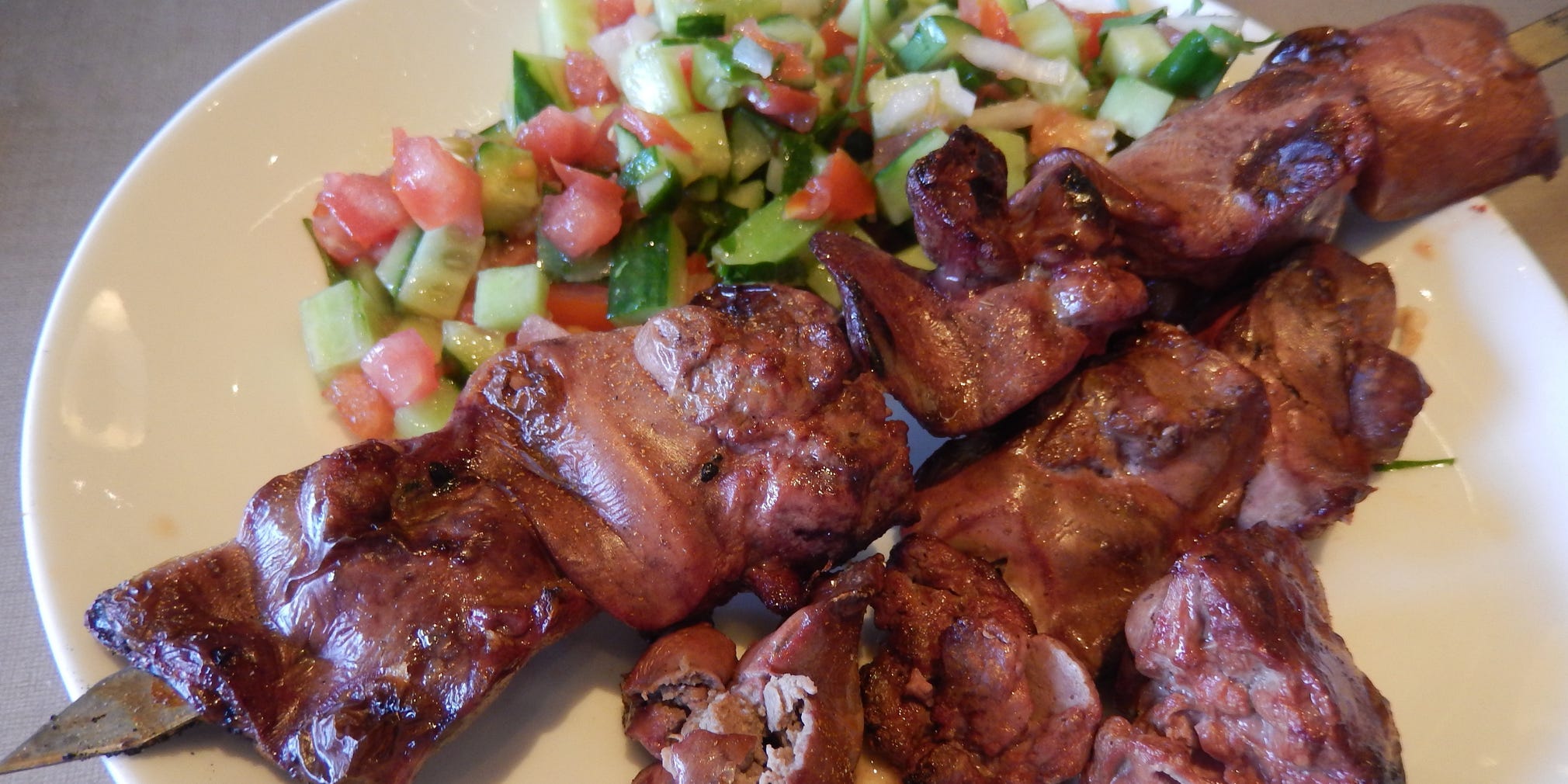
- A kosher diet isn't inherently healthy but it's possible to eat healthily on a kosher diet.
- Healthy options on a kosher diet include all whole fruits, vegetables, and grains.
- Some kosher meat has sodium added to it and should be limited by those monitoring their sodium intake.
- Visit Insider's Health Reference library for more advice.
In recent years, buying kosher food has become a trend, even among non-Jews, because it has a reputation for being higher quality or more healthy. But there is no scientific evidence that kosher food is healthier, and for some groups, it may even be worse for health.
Here's what you need to know about the healthy and unhealthy aspects of a kosher diet.
What to eat on a kosher diet
"Kosher" is a word derived from the Hebrew term "kashér," meaning "fit for consumption." The kosher diet is made up of foods that Jewish people are allowed to eat, according to a set of religious laws called kashrut. The kashrut laws were first outlined in the Torah, the Jewish religion's central text, which was put into practice around 1275 BC.
Following a kosher diet is relatively simple in the modern era, because many food products are now marked with indicators showing that they are kosher. Generally, a kosher product will have "parve", "pareve" (a Yiddish term for something that is kosher), or the letter K in a circle somewhere on the label.
Some food groups have virtually no kosher restrictions and do not need kosher certification. This includes all fruits, vegetables, and grains. The only exception to this rule is grape juice and wine, which both need to be kosher certified. This is because according to religious rules, wine and grape products must only be handled by Jewish people in order to be considered kosher.
Under kosher guidelines, there are certain animals that are always off-limits and cannot be eaten under any circumstances. Only land mammals with split hooves that chew their cud, a way of reprocessing digested food, can be eaten. Seafood is only allowed if the animal has fins and scales.
Therefore, most commonly-available meats like beef, chicken, lamb, and tuna are kosher, while rabbit, lobster, crabs, and horse meat are not. However, even foods like beef may or may not be kosher depending on how they are prepared and served. There are a few extra rules that determine if your meal is truly kosher.
A dish is NOT kosher if:
- Meat and milk are served together. For example, a cheeseburger would not be kosher. You also need to use separate forks for meat and milk and wait for a short period in between eating them.
- Meat is not slaughtered according to kosher law. The kosher method of slaughter, called shechitah, is meant to be painless, and involves removing all blood from the meat
- It is prepared in a kitchen/facility that handles non-kosher food. Kosher restaurants and manufacturers must have separate areas for non-kosher food and be certified by a rabbi or kosher organization.
The healthiness of a kosher diet
Because most foods are allowed on the kosher diet, there's options to eat healthily or unhealthily as you wish. That said, the kosher diet allows nearly all fruits, vegetables, and grains, so it is relatively easy to maintain a healthy diet if you so choose.
Some argue that kosher meat may be better for health, as it must pass through especially strict inspection, but experts say this does not make a difference in quality according to measures like meat color and aging. However, there are some kosher foods that may be harmful for certain groups.
"A wealth of kosher foods have additional sodium added to them," Melissa Rifkin, a registered dietician and owner of Melissa Rifkin Nutrition says. Adding salt can be part of the kosherization process for meat. "The salt is used to remove blood from the flesh, killing disease-causing bacteria, such as salmonella."
For this reason, people with high blood pressure or other conditions made worse by too much sodium may have to be careful about their intake of kosher meat.
Also, because there is a strict separation of meat and milk, many kosher foods use margarine, a product made from vegetable oils, as a dairy substitute, Rifkin says. "Margarine can have trans fats which have been linked to heart disease and other health ailments." While butter naturally has saturated fats, margarine needs to go through a process called hydrogenization to saturate the fats, which in turn creates more dangerous trans fats.
If you follow kosher restrictions and want to follow a diet for your health like the DASH diet or Mediterranean diet, your best option may be to work with a doctor or registered dietitian to make sure that you are getting the proper balance of essential nutrients.
There is no group of people that should absolutely not be on a kosher diet, says Rifkin, adding that nutrients can always be adjusted to meet nutritional health needs.
Insider's takeaway
The bottom line is that the kosher diet can be either healthy or unhealthy depending on your individual food choices. If you choose to follow a kosher diet, make sure to look out for trans fats or excessive sodium in foods and consult a doctor if you need help with diet planning.
